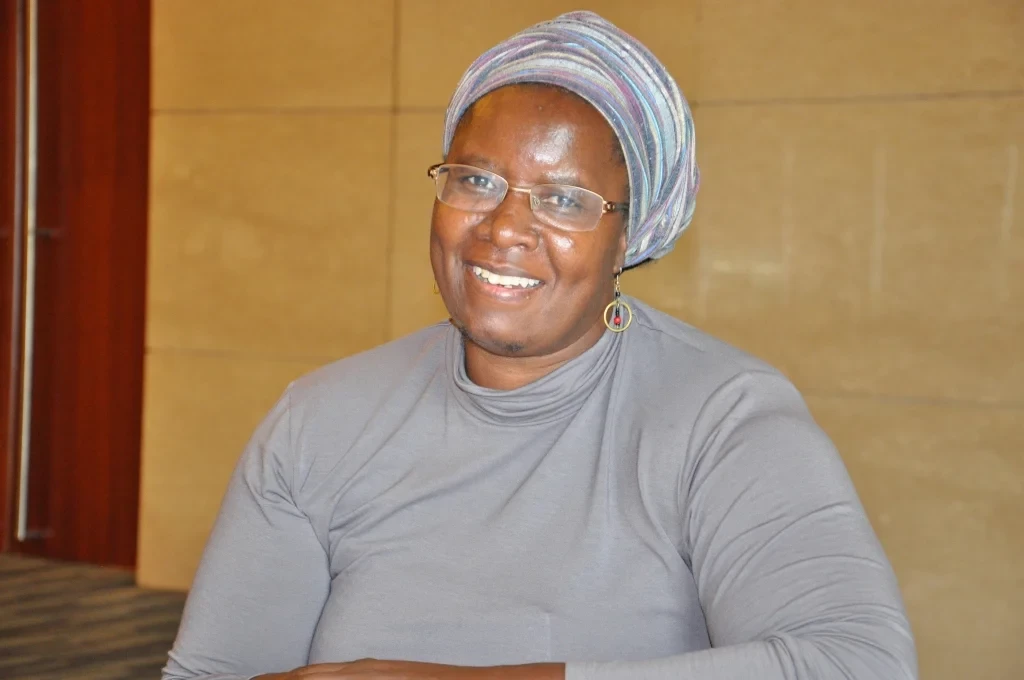
“I AM worried about the drought and food security at the household level, mostly in rural communities. I just hope that we have more rains so that many girls will not drop out of school,” says the newly appointed United Nations Women official Nyaradzai Gumbonzvanda.
Despite her new engaging role at the world’s biggest organisation, she remains humble and firmly rooted in Zimbabwe’s countryside where she grew up and began to understand the plight and struggles of a girl child in rural Africa.
Her history, whose genesis in the largely impoverished Murehwa communal lands — an outlying rural outpost 93km east of Harare — is as inspiring as her present achievement of having been appointed deputy executive director for Normative Support, United Nations System Coordination and Programme Results at the United Nations Entity for Gender Equality and the Empowerment of Women (UN Women).
It a mouthful title which perfectly highlights the road she has travel.
“The world we are in today demands boldness, vision and accountability whereby resources are used according to prioritise that face women and girls from outlying rural communities. I need to amplify women and girls' voices against violence, shaping equality and economic empowerment,” says Gumbonzvanda as she continues her journey which started from an unassuming Zimbabwean village.
“Women and girls need the best from any decision-making table, so that their rights are respected,” is one of her many mottos which expose the source of the energy that has landed in one of the world’s most esteemed posts.
Ever humble as she is, she remains firmly committed to creating opportunities for the girl child in marginalised communities, where she hardly dreams of ever gracing such high offices as the UN.
“I am grateful for the support I received from my family, community and the nation, Africa and the world over. This appointment is not for personal recognition, but for everyone who has seen me rising … It’s an affirmation in many people who invest in girls living in rural areas to grow up and be what they can potentially be in life,” she elucidates.
- Safe market for Umzingwane women on cards
- Call for more funding for women
- Be fair on female sources, UN tells media
- Two village girls hogging global limelight
Keep Reading
Gumbonzvanda is the founder and executive director of Rozaria Memorial Trust (RMT) based in Murehwa, Mashonaland East Province. The organisation was named after her late mother and has become a beacon of hope in transforming the rural girl child against violence, and forced marriages among other vices afflicting the girls and women.
Gumbonzvanda holds a Doctor of Laws degree (Honoris Causa) from the University of Massachusetts, USA, a Master in Laws degree from the University of South Africa, a graduate Certificate in Conflict Transformation from the Uppsala University, Sweden, and a Bachelor of Laws (Honours) degree from the University of Zimbabwe.
And west of Gumbonzvanda’s Murehwa outback — 260km on the opposite side of the Zimbabwe capital, Harare — is Hurungwe district, where yet another marginalised community birthed yet another village girl who has hogged the global limelight.
Her name is Tererai Trent, a women of similar virtues as Gumbonzvanda, that of raising the rural girl child from the dustbowls of society.
Born in Matau village, Zvipani in Mashonaland West province, she is an epitome of resilience and proof that dreams can come true, having been denied schooling and married off at a tender age, but still managed to achieve her wishes which were to go to America to get a bachelor’s degree, a masters and eventually a PhD.
She grew up far from the big city lights, was denied education by her father who married her off after being given a cow as dowry, she self-taught herself to the United States where she now resides and has rubbed shoulders with such celebrities as Oprah Winfrey.
Tererai, whose name loosely translates to “listener”, is an oasis of inspiration, commitment and dedication.
Like several girls, she was raised in a poverty-stricken family with females failing to access education.
However, she rose above the subjugation, landing in the US, where she met Winfrey and life blossomed, not only for her, but for other girl children she had left back in Zvipani.
Winfrey helped to raise US$1,5 million to build a school in Zvipani at Matau where the funds constructed a high school which has since launched many girls into better futures. The seed money later gave birth to many other schools.
“Dr Tererai Trent came here and was full of praise to school staff, and the community after Sarah came up with flying colours that saw her enrolling at the University of Zimbabwe. It was such a profound moment for us all. She cried with happiness saying she lost the chance but is happy that it is being achieved by younger generations,” said one of the teachers at Matau High School.
Two more girls have enrolled in different universities.
“These girls silenced those who thought girls in rural schools couldn’t achieve such academic performance. One of the girls, Sarah, is the first in her family to enter into a university. She represents her mom, grandmother, and generations of women before, forever changing and redefining the baton she will pass down to the next generation,” Trent said.
As an academic, motivational speaker and humanitarian, Trent is now a pacesetter for rural village girls who are now determined to excel beyond her.
Her life story was featured in the 2009 book Half the Sky by Nicholas Kristof and Sheryl WuDunn, and in an excerpt of that book published by The New York Times Magazine.
Just like Gumbonzvanda she is making a difference so that rural girls can rise from the dustbowls, excel and be champions of women’s emancipation and gender equality.










